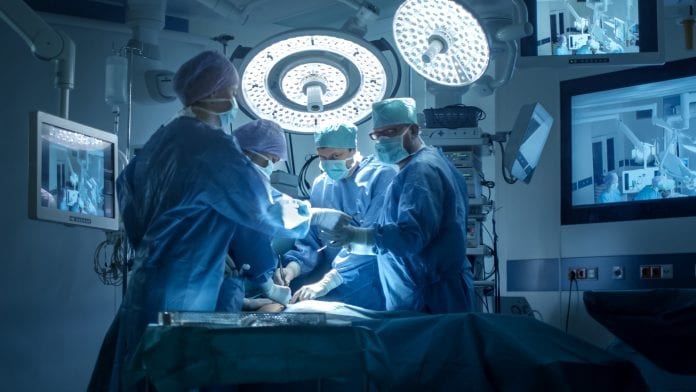
A new study, led by researchers at the University of Birmingham, revealed that routine testing patients for COVID-19 before major surgery could reduce the risk of respiratory complications and save lives.
A collaboration of researchers from all around the world found that using a nasal swab test to confirm that asymptomatic patients were not infected with COVID-19 was associated with a lower rate of post-operative complications. The main benefit was seen before major surgery and areas with a higher rate of the virus.
Routine testing patients allowed surgeons to identify asymptomatic infected patients and postpone their operation, avoiding the severe risk of COVID-19 complications after surgery. As well as this, swab testing assisted the prevention of cross-infection from asymptomatic infected patients to other elective surgical patients upon admission to hospital.
The COVIDSurg Collaborative involves experts from over 130 countries and is led by researchers at the University of Birmingham. The Collaborative published its findings in the British Journal of Surgery and is calling for pre-operative swab testing for all patients as part of a broader strategy to continue surgery safely during the pandemic.
Collaborative lead Dr. Aneel Bhangu, from the National Institute for Health Research (NIHR) Global Health Research Unit on Global Surgery, at the University of Birmingham, said: “Our findings demonstrate major variation between countries in the application of preoperative testing. Whilst a clear benefit to testing was seen, just one in four patients were screened for infection. This illustrates the need for global expansion and standardisation of swab testing worldwide.
“Preoperative swab testing should not be considered in isolation, but as part of a broader plan to minimise risks for patients, including setting up COVID-19 free surgical pathways in all hospitals performing elective surgery. For major surgery one serious postoperative complication was avoided for every 17 tests performed. We urge care providers to provide a routine swab test for all patients undergoing elective surgery whether or not they have symptoms.”
In the initial stage of the global COVID-19 pandemic, more than 28 million procedures were postponed worldwide. Therefore, the COVIDSurg Collaborative is backing its call for pre-operative routine testing of patients with the launch of a dedicated ‘toolkit’ that will help hospitals and healthcare providers around the world to get elective surgery fully functioning once more.
The COVIDSurg toolkit will support individual hospitals, regions, and countries during a major global reorganisation of surgical services during the pandemic and beyond, by: summarising published data to support safe surgical practice; guiding effective surgical recovery plans and; creating a five-year vision of safe and effective surgery that addresses .global challenges, including shortfalls in access to surgery that existed before the pandemic.
Dr. James Glasbey, study lead at the University of Birmingham, said: “Surgery is an essential part of all health systems. On average, you will undergo three to four operations during your lifetime. Surgery remains the cure for most cancers and underpins the treatment of many non-infectious diseases.
“Our new toolkit will help everyone involved in surgical planning over the next five years, including providers, healthcare leaders, patients, governments, financers and industry. It addresses global challenges but is locally adaptable to hospitals and environments with varying access to resources.”
Before the COVID-19 pandemic, there was already a global inequality in access to safe and affordable surgery, as 5 billion people lacked access to surgical care and 143 million more operations per year were needed globally. The pandemic deepened this inequality and brought to attention the need for change in how surgery is delivered.
Launched in March 2020, with data collected from 150,000 patients across 2,000 hospitals in the last nine months, the COVIDSurg collaborative has provided the data needed to support this change in the fastest time frame seen by a surgical research group.
In their previous report in October, COVIDSurg researchers found that patients who had their operation in a COVID-19 free area had better outcomes than those where patients treated for COVID-19 were mixed with those undergoing surgery. As a result, they called for hospitals to set up ‘COVID-19 free’ zones for surgical patients, to help save lives during the second wave of the pandemic.
























